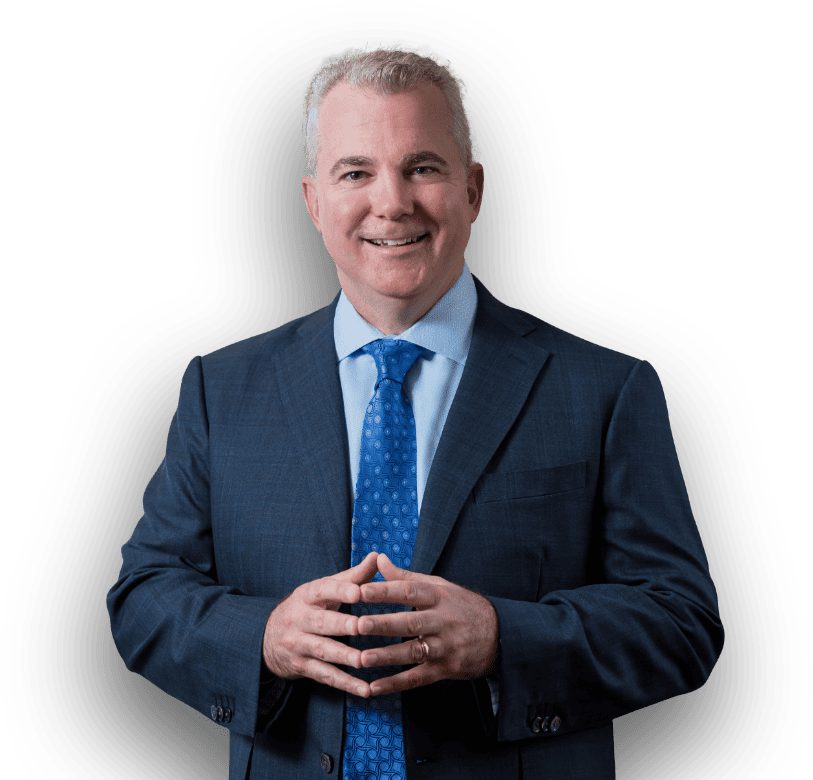If you want to be compensated for the mental toll of a motorcycle accident, you’ll need rock-solid proof. And not just any proof. Florida law requires a physical injury before you can even get in line to claim emotional damages.
If a motorcycle accident left you dealing with anxiety, PTSD, or worse, it’s possible to hold the at-fault party accountable for the emotional fallout. But the legal process in Florida isn’t forgiving.
Call Holliday Karatinos Law Firm at (352) 597-0009 to speak with a motorcycle accident lawyer and build a case that gets you what you deserve.
Florida's Impact Rule: The Barrier Between You and an Emotional Distress Claim
Florida law doesn’t hand out emotional distress damages without strings attached. It draws a hard line between physical injuries and emotional trauma with what’s called the Impact Rule.
What Is the Impact Rule?
In plain English, the Impact Rule means this: If you didn’t suffer a physical injury, Florida courts won’t let you collect damages for emotional distress. Period. Emotional suffering, no matter how severe, needs to be tied to an actual physical impact. You need something tangible—bruises, broken bones, a concussion—before the court even considers the psychological fallout.
The rule is grounded in Florida Supreme Court precedent, particularly R.J. v. Humana of Florida, Inc., 652 So. 2d 360 (Fla. 1995). In that case, the court reaffirmed that “without impact, there is no recovery for psychic trauma.”
What Counts as “Impact”?
Not all impacts need to leave you in a full body cast. The courts have accepted cases where the physical contact was minimal but still existed. For example:
- If the crash threw you off your motorcycle and left you with road rash or bruises, you’re in business.
- If debris from the accident hit you, even without a broken bone, that qualifies.
- If the accident resulted in any diagnosable physical condition—whiplash, lacerations, or internal injuries—that’s your ticket.
On the flip side, witnessing a horrific crash that gave you nightmares won’t cut it unless you were physically involved. Florida law draws a hard line there.
Why It Matters in Motorcycle Accident Claims
Motorcycle accidents almost always involve physical injury. If you’ve been thrown from a bike, even if your injuries seemed minor at the time, they may be enough to clear the Impact Rule hurdle. Medical documentation is everything here. If you left the accident without seeing a doctor, and there’s no evidence of physical harm, your claim for emotional distress could be dead on arrival.
Proving Emotional Distress: What the Court Needs to See
Once you’ve kicked down the door with the Impact Rule, you’ll still need to show the court exactly how the accident wrecked your mental health. No one’s handing out damages because you say you’re having a hard time sleeping or you’re anxious in traffic. Florida courts need receipts—and lots of them.
Medical Documentation: The Backbone of Your Case
Start here. Without medical documentation, you don’t have a claim. Judges and insurance companies trust licensed mental health professionals, not just your word.
- You’ll need official diagnoses from professionals—think PTSD, depression, or anxiety disorders directly linked to the accident.
- Consistent treatment records are the next piece. Therapy notes, psychiatric evaluations, prescriptions for antidepressants or anti-anxiety meds—every session and medication matters.
- Documentation needs to be specific: names, dates, symptoms, treatment plans. Vague records don’t move the needle.
By filing a claim for emotional distress, you’re putting your mental state in the spotlight. Under Florida Statutes § 90.503, this waives your usual privacy protections around mental health treatment. The defense gets access to what they need to challenge your claim.
Personal Testimonies: Painting the Picture
You can describe your suffering, but it’s far more compelling when the people closest to you back you up. Judges want more than your personal story—they want a full picture from all angles.
- Family members can explain how your behavior changed after the accident—maybe you’ve become withdrawn or prone to angry outbursts.
- Friends may have watched you pull away from social situations you used to enjoy.
- Coworkers could testify about how your focus and performance at work dropped off.
The more specific, the better. Statements like, “He’s not the same person” won’t get you far. Details about sleepless nights, panic attacks, or giving up hobbies you loved carry weight.
Expert Witnesses: Giving Your Claim Credibility
A mental health expert isn’t always required—but if you want the court to truly understand the depth of your emotional injuries, bringing in a forensic psychologist or psychiatrist can be a game-changer.
- They can explain the cause and effect between the accident and your diagnosis in a language judges and juries understand.
- They’ll break down how long your condition is expected to last and how severely it affects your life, which helps the court calculate damages.
Florida courts apply the Daubert Standard under Florida Statutes § 90.702, so your expert’s testimony has to be backed by solid science—not just opinion. If their methods aren’t reliable, their testimony won’t even make it into the courtroom.
Types of Emotional Distress Claims in Florida
If you’re trying to recover damages after a motorcycle accident, it’s worth knowing which type of claim fits your situation before you waste time chasing something the law won’t cover.
Florida breaks these claims into two main categories. One is for people directly injured in the crash. The other is for bystanders—people who witnessed something traumatic but weren’t physically hurt themselves. Each type comes with its own rules, requirements, and legal hoops.
Direct Claims: When You’re the One Injured
If you were thrown off your bike, scraped up, or broke a few bones, and now you’re struggling emotionally, this is your lane.
Direct claims are the most straightforward because they meet the Impact Rule requirements. You have a physical injury. The emotional distress—whether it’s panic attacks, depression, PTSD, or any other psychological issue—flows from that.
Florida law recognizes these claims because the physical injury serves as the trigger. The court doesn’t need convincing that the emotional trauma might be real; they’ve already got hard proof in the form of your busted ribs or concussion. Once you show physical harm, the door opens for non-economic damages, including:
- Pain and suffering
- Mental anguish
- Loss of enjoyment of life
Florida Statutes § 627.737(2) allow recovery for non-economic damages like these, but only if your injuries are considered “permanent” or serious enough to cross the state’s injury threshold. Motorcycle accident victims typically aren’t subject to Florida’s no-fault insurance laws, which means they can go directly after the at-fault party without worrying about personal injury protection (PIP) limits.
Bystander Claims: Watching Isn’t Enough Without Meeting Strict Standards
Florida law makes it tough for bystanders to claim emotional distress damages. Just watching a horrific motorcycle accident isn’t enough. Courts apply something called the “Zone of Danger” test in some cases, but most claims fall under the negligent infliction of emotional distress rules outlined in Champion v. Gray, 478 So. 2d 17 (Fla. 1985).
For a bystander to have a shot at collecting damages, these three things need to line up:
- The plaintiff must be closely related to the person who was injured or killed (think parent, child, or spouse).
- The plaintiff must have been present at the scene when the injury happened—or arrived shortly after—and must have directly witnessed the harm.
- The plaintiff must suffer a serious emotional injury that manifests physically.
If you watched a stranger crash from across the street, felt terrible about it, and needed counseling afterward, Florida courts won’t award you anything. But if you were standing right there when your spouse was thrown from their motorcycle and you developed severe psychological issues tied to the event, you could have a claim. Even then, it’s an uphill battle without clear medical proof and a physical manifestation of your emotional trauma.
Bystander claims are rare in motorcycle accident cases, but they exist. Direct claims are more common—and far easier to prove when there’s clear physical injury. Florida law keeps these categories separate for a reason. The courts are wary of opening the floodgates to every person who feels shaken after seeing a bad accident.
Challenges in Pursuing Emotional Distress Claims
Getting compensated for emotional distress after a motorcycle accident in Florida isn’t simple. The legal system throws up barriers, and proving something as personal and subjective as mental anguish takes more than just saying it’s there. Even when you do everything right, expect the other side to push back—hard.
Emotional Distress Is Hard to Quantify
Judges and juries deal in facts, not feelings. Broken bones show up on X-rays. Scars are visible. But psychological injuries live in your head. This makes them harder to measure and, more importantly, harder to prove.
No one’s handing out damages just because you tell them you’re having panic attacks. They want:
- A diagnosis from a licensed professional.
- Consistent treatment records.
- Proof that the accident triggered your condition—not something else.
The defense will look for any other cause to pin your emotional distress on. Pre-existing conditions, personal struggles, financial stress—everything becomes fair game. If they can convince the court that something other than the motorcycle crash caused your emotional damage, your case may fall apart.
The Burden of Proof Is on You
Florida law makes you prove every part of your claim. Emotional distress isn’t an automatic part of an injury case; it’s an extra layer that demands its own evidence. Courts require clear and convincing evidence to award damages for psychological harm. That’s a higher standard than the simple “preponderance of the evidence” used in other personal injury claims.
- Your medical records need to show more than a few bad days. You’ll need a formal diagnosis and a treatment plan that backs up your claim.
- Testimony from family or friends should detail specific examples of how your life has changed since the accident—not vague statements about you being “different.”
- An expert witness strengthens the case but only if their testimony meets the Daubert Standard. Without this, the court may exclude their input altogether.
Physical Manifestations Are Still Required in Most Cases
Recall that Florida’s Impact Rule generally requires a physical injury before a claim for emotional distress can move forward. But even beyond that, courts often expect emotional injuries to manifest in physical symptoms.
Think:
- Chronic headaches
- Ulcers
- Insomnia
- Panic attacks that cause physical symptoms like shortness of breath or chest pain
These physical effects tie the emotional distress to something tangible. Without them, your claim risks being dismissed as subjective and unverifiable.
Emotional Distress Claims Are Easy Targets for Defense Attorneys
Defense attorneys know emotional distress claims are vulnerable. They’ll do everything possible to undermine yours:
- Dig through your medical history to find pre-existing mental health issues.
- Cross-examine you and your witnesses to suggest you’re exaggerating or fabricating.
- Argue that your treatment (or lack of it) shows your emotional suffering isn’t serious.
They’ll point to gaps in your medical care. If you didn’t get treatment immediately after the accident, they’ll say your distress wasn’t severe enough to warrant help. If you skipped therapy appointments or stopped taking prescribed medication, they’ll use that against you.
Get Paid for the Pain You Don’t See
The team at Holliday Karatinos Law Firm knows how to build a case that gets results. Call (352) 597-0009 today and let us hold the other side accountable for every piece of what you’ve lost.












